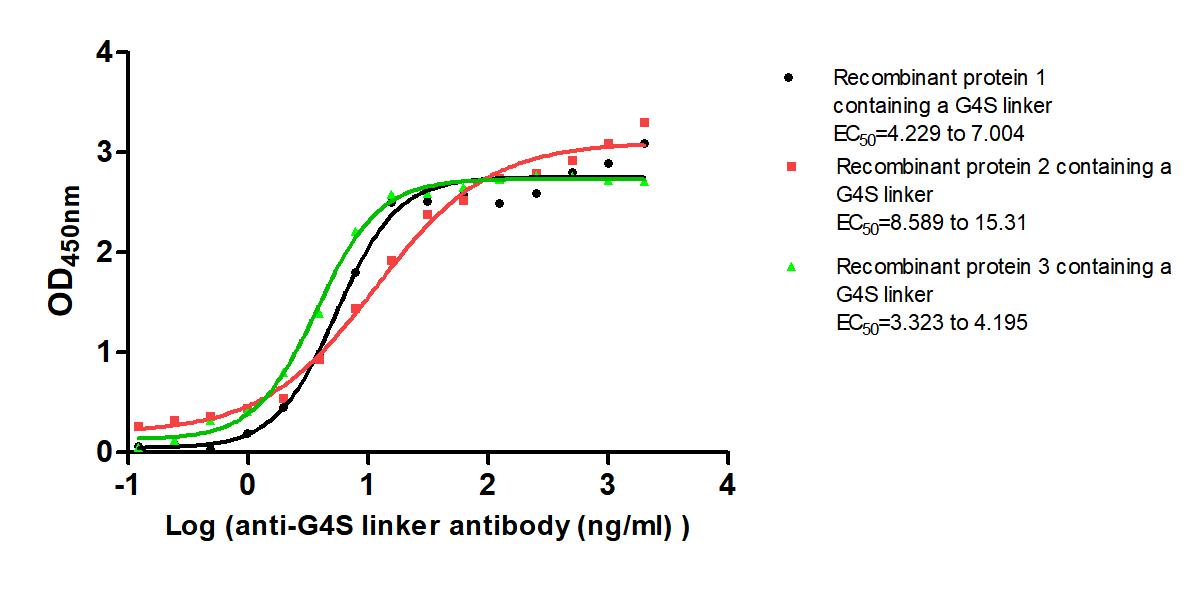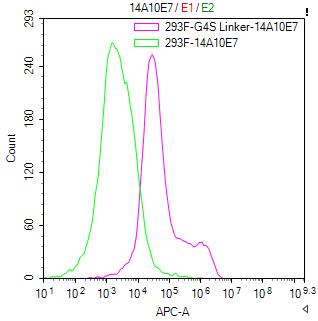The generation of the G4S linker monoclonal antibody starts with the immunization of a mouse with the immunogen G4S-BSA. After immunization, CUSABIO collects the spleen from the mouse and isolates the G4S linker antibody-producing B cells. The G4S linker antibody-producing B cells are fused to the immortal myeloma cells to form the hybridomas, which are then cultured for antibody generation. The G4S linker monoclonal antibody is purified from the cell culture supernatant via protein G affinity chromatography. Its purity is over 95%. It has been validated in ELISA and FC. In a functional ELISA, three immobilized recombinant proteins containing G4S linker at 2 μg/mL can bind to this anti-G4S linker antibody, with the EC50 of 4.229 to 7.004 ng/mL, 8.589 to 15.31 ng/mL, and 3.323 to 4.195 ng/mL, respectively.
The G4S linker is a core pentapeptide sequence (Gly-Gly-Gly-Gly-Ser) that is commonly found in most chimeric antigen receptors (CARs) based on single-chain variable fragments (scFv). The G4S linker can control the stability of the scFv and the non-covalent binding between the VH and VL regions. By adjusting the length of the G4S linker, the construction of the CAR can be optimized to maintain its activity in vivo and effectively recognize tumor cells. In addition to CAR structure construction, the G4S linker also enhances the recognition of the target antigen by CAR-T cells by binding to specific antibodies.
The G4S linker monoclonal antibody can be used to detect whether CAR cells are successfully transferred and expressed. It can also be used for CAR cell positive rate quality control, to evaluate the activation ability of CAR cells and the ability to kill target cells and to separate and purify CAR cells. In the clinical research stage, G4S linker monoclonal antibodies can be used to detect the number and function of CAR cells in patients and PK studies.





